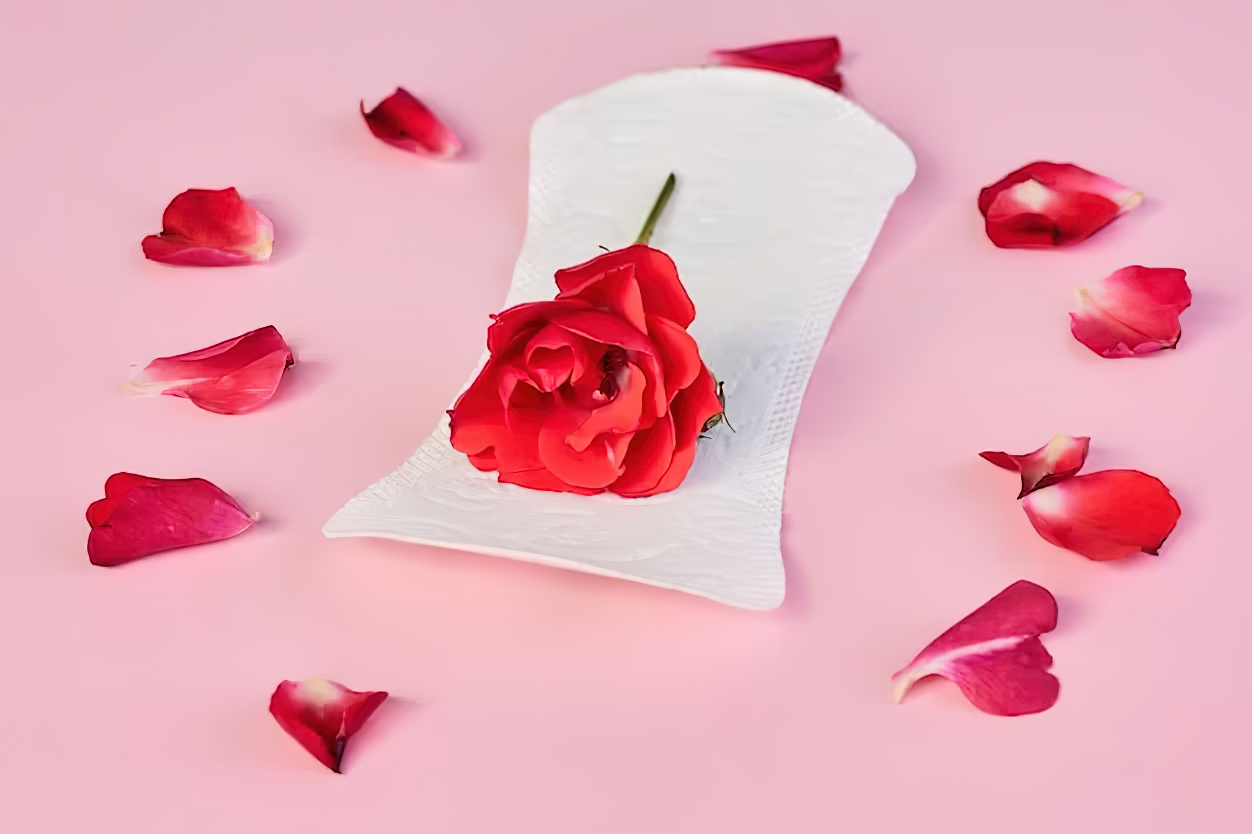If you bleed heavily for a few days, your blood volume may become dangerously low. Consuming 4 to 6...

...
There are things you may do to find relief if your period is so heavy that you quickly soak through pads or tampons — or if you have to double up on several forms of protection.
You might be able to alleviate your symptoms and get your cycle back on track by adopting a few dietary changes. Getting enough rest and utilizing over-the-counter (OTC) pain medicines can also help in certain circumstances.
Make an appointment with your doctor if you don't observe a difference within the next one or two cycles. You should also consult your doctor if you have any of the following symptoms:
- Have clots the size of a quarter or bigger in your menstrual blood
- Bleeding during periods
- You are exhausted or out of breath
If you experience irregular and severe bleeding patterns approaching menopause, or if you have vaginal bleeding after being informed you're through menopause, you should consult a doctor right once.
How natural and home cures can help
There are a few things you may do at home to alleviate your symptoms and restore your cycle.
Hydrate
If you bleed heavily for a few days, your blood volume may become dangerously low. Consuming 4 to 6 extra glasses of water every day can help you keep your blood volume stable.
To balance out the excess fluid you're consuming, consume an electrolyte solution like Gatorade or add more salt to your diet.
Consume vitamin C-rich meals.
This vitamin aids in the absorption of iron, which can help avoid anaemia. Citrus fruits such as oranges and grapefruits contain it.
Vitamin C can also be found in:
- Cabbage
- Ugu - Fluted pumpkin (Telfairia occidentalis)
- Corn
- Pawpaw (Papayas)
- Orange
- Guava
- Bell Peppers
- Potatoes
- Tomatoes
- Mango
- Sweet Potato
- Carrot
Increase your intake of iron-rich meals.
Iron is lost when you bleed. Iron is required by the body to generate haemoglobin, a protein that aids in the transport of oxygen by red blood cells. Very heavy periods can deplete your body's iron stores, resulting in iron deficiency anaemia.
Anaemia symptoms include:
- tiredness
- dizzy
- pale
- skin
Eat meals high in iron to obtain more of this vitamin, such as:
- lean beef
- oysters
- chicken and turkey
- beans
- tofu
- spinach
Cook in a pot that is iron-cast
Cooking with a cast-iron skillet is another method to get more iron. Meals containing a lot of moisture, like spaghetti sauce, absorb the most iron.
Stirring the pot frequently can draw even more iron into your dish.
Just be careful not to overdo it. Cooking things in an iron kettle may give you more iron than you need, and it may result in dangerously high amounts in youngsters.
How Supplements May Assist
Extra vitamins taken during your period may aid with bleeding. Some minerals — like iron, specifically — help restore what you lose each month.
Before using any supplement, consult your doctor. They can evaluate if you need to take a supplement, the optimum amount for you, and any potential side effects or interactions.
Among the possible supplements are:
Vitamin C. This vitamin may assist to prevent bleeding. It may also help your body absorb iron, which can help avoid iron shortage.
Iron. There is some evidence that a shortage of iron may contribute to heavy periods. If eating an iron-rich diet hasn't increased your levels, supplementing may help.
Blackstrap molasses. This thick, sticky cane sugar waste is more than just a culinary ingredient. It contains iron as well as calcium, magnesium, and selenium.
How over-the-counter drugs can help
Certain over-the-counter pain medications can help minimize blood loss during periods. Nonsteroidal anti-inflammatory medicines (NSAIDs) such as Advil, Motrin, and aspirin are examples.
NSAIDs do not reduce bleeding as effectively as prescription pharmaceuticals, but they can be used with other medications to provide better relief. Some medications may also aid in the relief of unpleasant cramps.
How pharmaceutical drugs can aid
If you go to your doctor about your heavy periods, they will most likely start you on one of the following medications:
Methods of birth control
Medications, patches, and rings
Hormonal birth control comes in the form of tablets, patches, and rings.
Hormonal contraception thins the uterine lining, which usually results in reduced monthly bleeding. It may also help with other period symptoms including severe cramps.
Typically, you take the pill, patch, or ring for 21 days, then take 7 days off for menstruation. Modern birth control tablets can deliver a steady stream of hormones throughout the month, resulting in fewer or no periods.
The following are common negative effects of the pill and other hormonal methods:
- sore breasts
- bloating
- nausea
- mood changes
- bleeding or spotting between periods
- weight gain
- headaches
Shot of birth control
Another type of hormonal birth control is the Depo-Provera injection. Instead of taking a pill or using a patch, your doctor will inject the drug into your arm or buttock.
To be successful, this drug must be used once every three months.
Intrauterine hormonal device (IUD)
An IUD is a tiny device that is put into the uterus to prevent pregnancy. A hormonal IUD, such as Mirena, can be effective for 3 to 5 years, depending on the manufacturer.
Copper IUDs are not advised for this use.
Tranexamic acid is a kind of acid (Lysteda)
Lysteda is a pill that contains an antifibrinolytic agent. It prevents your body from breaking down clots, which lowers bleeding.
You just need to take it for a few days each month, but it does not prevent pregnancy like birth control pills. Muscle cramps and headaches are among the side effects.
Norethindrone (Aygestin)
Aygestin is a tablet that contains the progestin hormone. Women experiencing excessive bleeding should take a 5-milligram dosage twice daily from day 5 to day 26 of their menstrual cycle.
It has the same adverse effects as hormonal birth control techniques.
Agonists of gonadotropin-releasing hormone (GnRH).
These medications are used to treat excessive bleeding caused by endometriosis and uterine fibroids. They are available as an injection and a nasal spray.
GnRH agonists should only be administered for 3 to 6 months. The following side effects may develop with time:
- hot flashes
- headaches
- weakened bones
How Surgery May Assist
If medicine does not relieve your symptoms, surgery may be an alternative.
Your doctor will evaluate the following factors before proposing a certain procedure:
if you intend to conceive, how severe your symptoms are whether an underlying reason is to blame
Surgical procedures may include:
Ultrasound that is focused
This noninvasive therapy reduces uterine fibroids-related bleeding. The fibroids are shrunk with ultrasound pulses.
Embolism of the uterine artery
This method is also used to treat uterine fibroids. A catheter will be inserted into an artery in your thigh and threaded into the arteries in your uterus by your surgeon. Small beads will be inserted into your fibroids' blood vessels, forcing them to shrink.
Myomectomy
This technique eliminates uterine fibroids while preserving your uterus. It can be done through your vagina, through numerous tiny incisions in your belly (laparoscopy), or through one bigger cut in your abdomen.
The treatment used by your surgeon is determined by the size, quantity, and location of your fibroids.
Ablation of the endometrium
This procedure uses a laser, heat, or radiofrequency energy to remove the majority of your uterine lining. Following that, your periods will be mild to nonexistent, and you will be unable to conceive.
Resection of the endometrium
Ablation is comparable to endometrial resection. This surgery entails removing the whole uterine lining with a wire loop. You won't be able to get pregnant again after that.
Hysterectomy
This operation removes your whole uterus. It stops excessive bleeding, but you won't be able to conceive later.
Some helpful hints and tricks
There are a few things you may attempt to make your periods more comfortable until you discover a medication that reduces your severe bleeding:
Make use of a menstruation cup. This little silicone cup inserts within your vagina and collects blood as it exits your uterus. It has a far larger capacity than a pad or tampon and is less prone to leak. Menstrual cups are also better for the environment than disposable sanitary items since they are reusable.
Put on period pants. These absorbent undergarments are intended to support tampons and pads in order to avoid leakage. You may also wear them by yourself. Thinx, for example, claims that its product can absorb the equivalent of two tampons' amount of blood without creating pain.
Use a heating pad. A heating pad can assist ease unpleasant menstrual cramps, but it will not lessen your flow.
When to Consult Your Doctor
See your doctor if your menstruation lasts longer than 1 or 2 months. If you are bleeding more than normal, it is possible that:
- you have to use two pads or tampons to provide adequate coverage
- you soak through one or more pads or tampons per hour
- you have to change your pad or tampon during the night
- you pass blood clots larger than a quarter
- you have anaemia symptoms such as fatigue, shortness of breath, and pale skin
- your periods last for more than a week at a time
Most causes of heavy periods, such as fibroids, are more bothersome than severe. Yet, if you do not manage the condition and bleed excessively, you may get anaemia.
Your doctor will collaborate with you to develop a treatment plan that meets your needs while alleviating your symptoms. This may require some trial and error, so be honest with your doctor and give it some time.

Add new comment